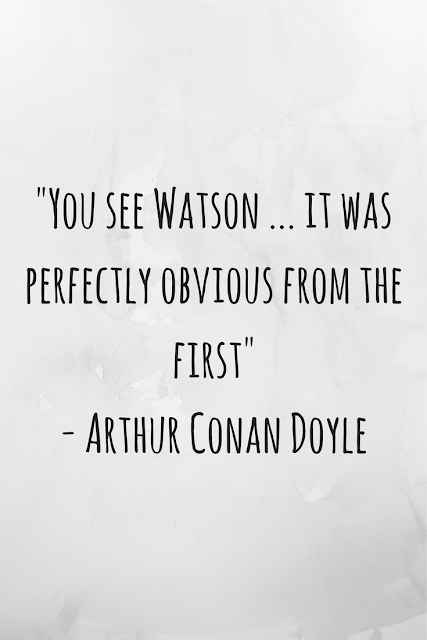I'm a BIG fan of BBC1's Sherlock series. I'm always gutted that each series is only three episodes long, but they are incredible. And yet, I've put off reading any Sherlock Holmes novels for years. I've always wondered how an entire show with multiple series' could be based around a couple of books, but now I see: each chapter of the novels (I assume it's the same for all of Conan Doyle's works as well as The Great Adventures) encompasses a new mystery.
Sherlock Holmes has become a household name because he is the first detective in the English literary crime canon who used intuition to solve crimes rather than clues. This strikes a massive difference to what would then have been more traditional mysteries. I am a big fan of the intuitive detective: TV crime shows are my thing, and The Mentalist (a show all about a man using his intuition to solve crimes) is one of my favourites. I can't imagine this genre not existing.
Also, now that I've read one of the books, I can see how Benedict Cumberbatch is the PERFECT fit for playing Sherlock Holmes. The detective is quirky, tall, and likes to brood. I honestly couldn't imagine anyone else playing him so well. Anyhow, let's actually get on to reviewing the book shall we?
The novel is written from the perspective of Dr Watson, who is Sherlock Holmes' second-hand man. Watson is always a few steps behind Sherlock, but he documents their adventures together. The pair come up against an array of mysteries in the novel, including kidnapping, bank robbery and murder. Sherlock always has a great many cases that he is being asked to work on, often by Scotland Yard, as his opinion is so highly revered.
Once on the scene of a crime, Sherlock sets to work examining every last detail visible to the naked eye. From here, and from interviewing witnesses, or the victims of the crimes, he begins to form an image of who may be responsible, or what exactly is going on. Then he is able to make a focused inquiry into the crime and ultimately arrive at his conclusion far before anyone else can.
If you're interested in crime novels, especially how they've developed in the last few centuries, then I would definitely recommend giving this a go!

No comments:
Post a Comment